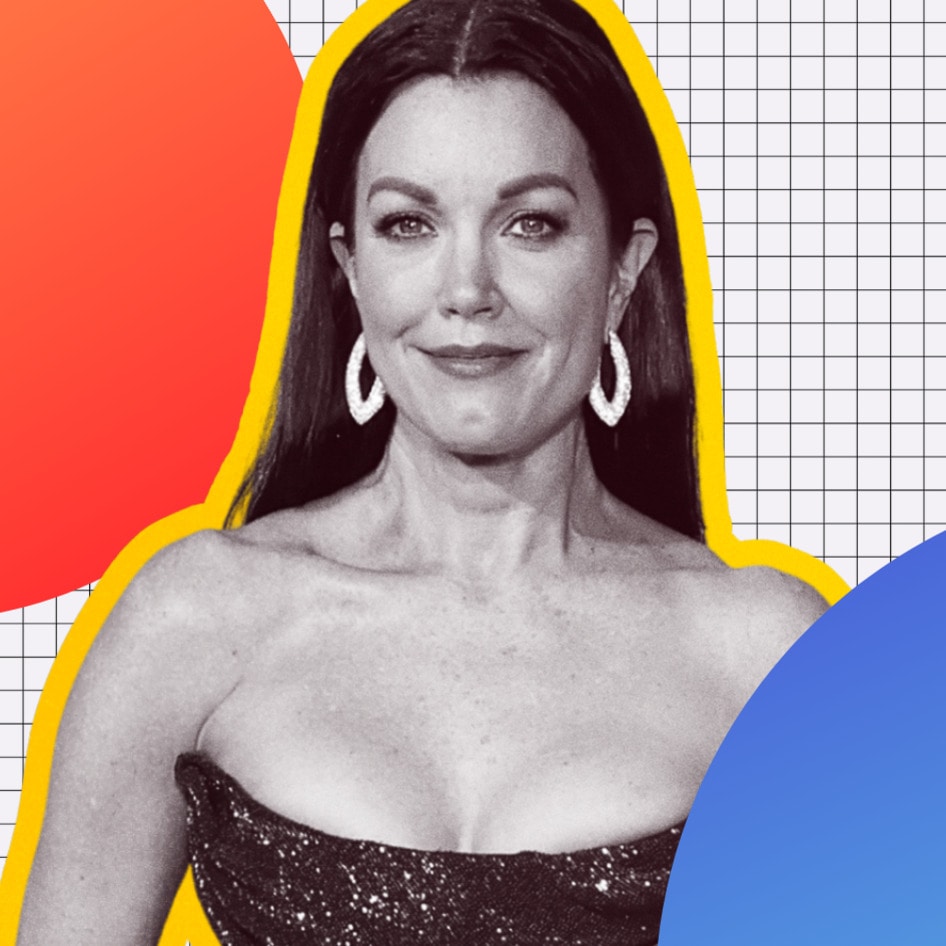Animal-rights activist Ingrid Newkirk—who is arguably the most famous and controversial activist in the world—co-founded People for the Ethical Treatment of Animals (PETA) almost 40 years ago after a life-changing experience that had her taking her neighbor’s abandoned kittens to an animal shelter. Since then, she has dedicated herself to making the world a better place for all living beings and has inspired countless others to do the same. Through PETA’s colorful demonstrations and messaging that pushes the envelope, she is getting the world to talk about how we treat animals. In honor of Newkirk’s 70th birthday this month, we’re sharing 70 reasons why she deserves to be celebrated.
1. Ingrid Newkirk created Washington, DC’s first spay/neuter clinic and adoption program. As DC’s first female “pound master,” she took animal sheltering into uncharted territory in the 1970s and was chosen as a Washingtonian of the Year for her efforts.
2. She made “animal rights” a household term. PETA’s first investigation, the Silver Spring monkeys case in 1981, led to the nation’s first arrest and criminal conviction of an animal experimenter for cruelty to animals, the first confiscation of abused animals from a laboratory, the first US Supreme Court victory for animals used in experiments, landmark additions to the federal Animal Welfare Act, and public scrutiny of the abuse that animals endure in experimentation.
3. She prevented dogs and cats from being used as living targets. PETA shut down a US Department of Defense underground “wound lab” and achieved a ban on shooting dogs and cats in military wound laboratories.
4. She reined in horse slaughter. PETA closed down a Texas slaughterhouse operation in which 30,000 horses were trucked in and left to starve in frozen fields without shelter.
5. Fewer animals are languishing in laboratories, thanks to her. After PETA publicized the gross mistreatment of animals at City of Hope in California, the government suspended more than $1 million of the laboratory’s federal funding. The SEMA research laboratory in Maryland stopped confining chimpanzees to isolation chambers as a result of PETA’s campaign, and PETA stopped a plan by Cedars-Sinai Medical Center (California’s largest hospital) to ship stray dogs from Mexico to California for experiments.
6. At 70 years old, she’s still getting naked. Ingrid has stripped off her clothing countless times to protest fur, leather, meat, and more. For one ad, she hung on a meat hook in a London market next to the bodies of dead pigs to show the striking similarities between humans and other animals.
7. She constantly pushes creative boundaries. PETA’s first sensational vegetarian commercial, “Meat Stinks,” with Grammy winner K.D. Lang, got the singer banned on country radio stations—but it drew such massive coverage that her album went gold. Lang’s gold record still adorns the walls of PETA’s Virginia headquarters.
8. She pulls back the curtain on abusers in entertainment. After PETA exposed the backstage beating of orangutans by Las Vegas entertainer Bobby Berosini, his wildlife permit was suspended and his show ended.
9. She once spent 15 days in jail for the animals. This happened after she joined dozens of activists to stop an abhorrent annual pigeon shoot in Hegins, PA. Security and jail stints related to the pigeon shoot cost taxpayers $300,000. The cruel event was later canceled.
10. Thanks to her, people are losing their appetite for foie gras. PETA’s investigation into foie gras production prompted the first-ever police raid on a factory farm, and PETA has persuaded many restaurants to stop selling the product.
11. She ended the worldwide use of animals in car crash tests. She once set fire to a car outside a General Motors auto show to protest the company’s use of primates, pigs, dogs, ferrets, mice, and rats in cruel car crash tests. (Don’t worry—the vehicle had been donated by a PETA member.) After 18 months of PETA’s headline-making stunts exposing GM’s cruelty, the automaker ended all car crash tests on animals, and the practice was stopped worldwide.
12. She made everyone want to shed their skins. A California furrier was charged with cruelty to animals after PETA filmed him electrocuting chinchillas by clipping wires to their genitals, and a fur rancher on a different farm was recorded injecting minks with weed killer, causing them to die in agony. Both fur farms agreed to stop using these cruel killing methods.
13. She once took over fur-pusher Anna Wintour’s office. Along with PETA members and Kate Pierson of The B-52s, Newkirk finagled her way past security and crashed Vogue’s New York office to protest the magazine’s promotion of fur. When Wintour ran and barricaded herself in a back room, Newkirk took over the reception desk and began answering Vogue’s phone by saying, “We’re closed today due to cruelty.”
14. She came between Calvin Klein and fur. Less than a month after PETA supporters occupied Klein’s New York office in 1994—which led to a meeting between the designer and PETA—Klein became the first major fashion designer to stop using fur.
15. Birds and bats are safer, thanks to her. PETA persuaded Mobil, Texaco, Pennzoil, Shell, and other oil companies to cover their exhaust stacks after showing them that millions of birds and bats had become trapped in them and burned to death.
16. Greyhounds think she’s pretty great. After PETA’s exposé led to the closure of dog-blood farm The Pet Blood Bank in Texas and the rescue of 151 greyhounds, the greyhound-racing industry adopted long-overdue standards on blood banks.
17. She sticks up for chickens. PETA’s efforts led to the first-ever cruelty charges filed against a factory farmer for cruelty to chickens for allowing tens of thousands of the birds to starve to death. The president of the company ultimately pleaded guilty.
18. NASA changed its trajectory because of her. Following PETA’s campaign, the agency pulled out of Bion—a joint US, French, and Russian experiment in which monkeys wearing straitjackets were to have electrodes implanted in their bodies and be launched into space. Years later, following a vigorous PETA campaign, NASA canceled plans for a $1.75 million study in which dozens of squirrel monkeys would have been exposed to a harmful dose of radiation.
19. Her work persuaded Gillette to observe a moratorium on animal testing. PETA’s years-long campaign included the presentation of shareholder resolutions at the company’s annual meetings and support from compassionate celebrities, including Paul McCartney, Lily Tomlin, Hugh Grant, and Elizabeth Hurley.
20. She helped pass the first anti-cruelty law in Taiwan. This occurred after she traveled to the country to expose the way countless dogs were being beaten, starved, electrocuted, and drowned in the country’s animal shelters.
21. She shows people the beings behind their bacon. Eyewitness investigations into pig-breeding factory farms in North Carolina and Oklahoma revealed horrific conditions and the daily abuse of pigs, including that one animal was skinned alive, leading to the first-ever felony indictments of farm workers.
22. She shut down a puppy mill. PETA’s eyewitness investigation into the Nielsen Farms puppy mill in Kansas revealed extremely small enclosures and rampant sickness, abuse, and death. The investigation led to the closure of the facility and a $20,000 fine from the US Department of Agriculture.
23. She campaigns the US government. The White House and the US Environmental Protection Agency spared 800,000 animals chemical toxicity testing in a high-volume testing program, thanks to PETA’s grassroots campaign, congressional testimony, and scientific documentation.
24. She got Gap to see the truth behind leather. Newkirk investigated the leather industry in India and documented that workers broke cows’ tails, rubbed chili peppers into their eyes, and abused them in other ways. When Gap Inc. refused to stop obtaining leather from China and India, PETA launched a campaign and Newkirk and Chrissie Hynde took over the window display at the company’s New York flagship store. Gap stopped purchasing leather from abroad, and J.Crew and many others followed suit.
25. McDonald’s changed its practices after she got involved. In September 2000, after a PETA campaign that lasted 11 months and included more than 400 demonstrations in more than 23 countries, as well as advertising and celebrity involvement, McDonald’s became the first fast-food company to agree to make basic animal welfare improvements for farmed animals.
26. Burger King and Wendy’s followed suit. In June 2001, PETA persuaded Burger King to adopt some animal welfare improvements, including conducting unannounced slaughterhouse inspections and giving hens more cage space. Then, in September 2001, following a vigorous PETA campaign, Wendy’s followed suit, announcing plans to implement some basic animal welfare standards.
27. Six polar bears were rescued from a tropical circus, thanks to her. The animals had been underfed, whipped, and forced to perform in sweltering temperatures.
28. She saves elephants from torture, too. Evidence submitted by PETA led to the mandatory relinquishment of all 16 elephants used by the Hawthorn Corporation, an elephant-rental company that has since shut down.
29. She’s making apes in ads a thing of the past. Honda, PUMA, Keds, and other companies pulled commercials featuring great apes following PETA’s campaign, and several corporations pledged never to use great apes in advertising in the future. The Ad Council signed PETA’s Great Ape Humane Pledge in 2008, and in 2012, it extended that pledge to include a ban on all wild animals in advertising. The top 10 advertising agencies in the US have now signed the pledge and banned the use of great apes in their advertising.
30. She cares for animals in pet stores. Thanks to PETA’s lengthy campaign to push Petco to take more responsibility for the animals in its stores, the company agreed to stop selling large birds and to make provisions for the millions of rats and mice it sells.
31. She made animal violence part of the conversation. Newkirk addressed the International Nonviolence Conference in Bethlehem, which was the first time that nonviolence toward animals was formally included in what had always been a humans-only conference agenda.
32. She persuaded Polo Ralph Lauren to stop selling fur. The company also pulled all fur items from its store shelves, and donated them to those in need in Mongolia.
33. She persuaded Jean Paul Gaultier to do the same. Newkirk and other activists were arrested after occupying Jean Paul Gaultier’s Paris boutique to protest his use of fur. Years later, in 2018, he announced live on French television that he would ban fur from future collections, admitting that the ways animals are killed for their fur are “absolutely deplorable.”
34. She calls out major companies. After uncovering cruel experiments funded by major beverage manufacturers, PETA persuaded POM Wonderful, PepsiCo, and Coca-Cola to end all animal tests.
35. She gets companies to care. In 2008, PETA elicited agreements to make major improvements for the welfare of farmed animals from Safeway, Harris Teeter, and the company that controls the purchase of chickens for KFCs in Canada.
36. She makes a case for abused turkeys. PETA’s investigation into Aviagen Turkeys, Inc., part of the self-proclaimed “world’s leading poultry breeding company,” revealed that workers tortured, mutilated, and maliciously killed turkeys. Three former employees were indicted on felony cruelty-to-animals charges—the first felony charges for abusing factory-farmed poultry in US history—and two of them became the first factory farmers to be convicted of abusing turkeys. One man was sentenced to a year in jail—the strongest penalty levied for abusing a factory-farmed animal in US history—and all three were barred from owning or living with animals for five years.
37. Her work leads to criminal charges against animal abusers. After PETA’s investigation of a pig-breeding factory farm in Iowa uncovered horrific abuse of sows, boars, and piglets, the manager of the farm was fired, and the evidence resulted in 22 criminal charges against six workers, all of whom admitted guilt and were sentenced to serve up to two years’ probation.
38. She stopped animal abuse within the Bolivian military. After nearly a month of intense PETA campaigning against horrific combat training exercises conducted by the Bolivian military on live dogs, the Bolivian Ministry of Defense ended the killing by issuing the military’s first-ever animal protection regulation, which “prohibit[s] all acts of violence, exploitation, [and] mistreatment that provokes the death of animals.”
39. She all but decimated the cruel angora industry. PETA’s 2013 exposé of the angora wool industry, which revealed that rabbits scream in pain as they’re stretched across boards and their hair is torn out, led more than 330 brands worldwide to ban angora. These include the world’s three largest retailers—H&M, Gap Inc., and Inditex (which owns Zara). Just one year after PETA released the video footage, angora exports were down 85 percent.
40. She got H&M to stop selling exotic skins. After receiving the video of PETA’s exposé showing extreme cruelty in the exotic-animal skins trade, H&M became the first retailer to adopt a policy banning products made from exotic skins in all its 1,800 stores around the world.
41. Mohair is no more at many brands, thanks to her. PETA’s 2018 video exposé of the mohair industry revealed for the first time that terrified angora goats are often horrifically tortured before being killed. More than 300 brands around the world have since banned the fiber.
42. She helped amend archaic animal cruelty laws. Less than six months after PETA released its eyewitness investigation into laboratories at the University of Utah, Utah legislators voted overwhelmingly to amend an archaic state law so that government-run animal shelters would no longer be forced to sell dogs and cats to laboratories on demand.
43. She got an animal-testing laboratory shut down. Just one week after PETA released the results of its shocking eyewitness investigation into Professional Laboratory and Research Services and filed a complaint with the United States Department of Agriculture, the North Carolina-based contract animal testing facility surrendered nearly 200 dogs and more than 50 cats and closed its doors. This was only the second time in US history that a laboratory was forced to surrender animals and shut down.
44. She sued SeaWorld. Newkirk and PETA are constantly expanding the boundaries of people’s compassion. Case in point: PETA’s first-of-its-kind lawsuit asked a federal court to declare that five wild-caught orcas forced to perform at SeaWorld were being held as slaves, in violation of the 13th Amendment to the US Constitution.
45. She stopped a monkey-breeding facility. After two years of PETA campaigns and a lawsuit by PETA and local residents, the Supreme Court of Puerto Rico nixed a plan by the Bioculture corporation to set up a monkey-breeding facility and sell monkeys to US laboratories.
46. She helped China realize testing on animals was unnecessary. By funding scientists to train Chinese government officials in the use of non-animal testing methods, PETA launched an effort to stop China from requiring tests on animals for cosmetics and household products. By the end of 2012, China had accepted its first non-animal tests for cosmetics ingredients. PETA also persuaded cosmetics company Urban Decay to reverse its decision to sell its products in China, and John Paul Mitchell Systems pulled out of the Chinese market rather than having its products tested on animals.
47. She rescued hundreds of cats. PETA’s investigation of “no-kill” hoarder Caboodle Ranch, Inc., led to the seizure of 700 cats (among the most ever in US history), felony cruelty charges, and the closure of the ranch.
48. She’s helped save huge numbers of small animals. PETA’s investigation into animal dealer US Global Exotics prompted the largest seizure of animals in history—more than 26,000. And after a two-month PETA investigation documented that thousands of animals were neglected, dying, and cruelly killed, law-enforcement officials raided Global Captive Breeders, a company in Lake Elsinore, CA, that bred and sold reptiles and rats for the pet trade. The owner and manager were charged with a total of 223 felony cruelty-to-animals and related charges.
49. She helped save Ben the bear. After a long and hard-fought battle by PETA, the Animal Legal Defense Fund, and concerned residents, Ben the bear was rescued from abhorrent conditions at a North Carolina roadside zoo. He will live out the rest of his days at the Performing Animal Welfare Society’s accredited wildlife sanctuary in Northern California.
50. She rescued ever more bears. After years of imprisonment in concrete pits at Chief Saunooke Bear Park in Cherokee, NC, 11 bears were freed following a years-long campaign and PETA investigation that forced the roadside zoo to pay a fine and surrender its exhibitor’s license to settle more than a dozen charges for violations of the Animal Welfare Act.
51. She goes to war so animals don’t have to. Following decades of campaigning by PETA, the US Army announced that it would reduce its use of animals for deadly trauma training exercises and restrict training for many military personnel to exclusively modern, non-animal methods. The US military also ended the use of monkeys in the Army’s cruel chemical-attack training course.
52. She promotes non-animal testing worldwide. Newkirk helped form the PETA International Science Consortium Ltd., an accredited stakeholder with the agency that oversees the largest chemical testing program in the world. It works with industry, private research facilities, and governments to promote non-animal tests around the world.
53. She stands up to wooly bullies. After hearing from PETA that many sheep used for their wool undergo “mulesing”—in which huge chunks of flesh are cut from their backsides without any painkillers—more than 50 clothing retailers, including Abercrombie & Fitch, Liz Claiborne, H&M, Kenneth Cole, Perry Ellis International, and Express, switched to using wool that comes only from non-mulesed sheep.
54. Her demonstrations draw attention. Newkirk once had herself hitched to a horse-drawn carriage with a bit in her mouth and let residents of Mumbai watch her struggle to pull it through the streets in the hot sun, just as horses are forced to do. Because of PETA’s campaigns, Mumbai and other cities around the world—the list continues to grow—have banned horse-drawn carriages.
55. She got LA to ban bullhooks. In 2013, the Los Angeles City Council voted unanimously to support a bullhook ban, showing PETA’s footage of baby elephant “training” during the hearing.
56. Abusers are caught and charged, thanks to her. Following PETA’s groundbreaking investigation from 2010, three pigeon-racing organizers pleaded no contest to charges of commercial gambling—the first time in history that anyone has been held responsible for illegal conduct associated with cruel pigeon races.
57. She shut down pigeon-racing in Taiwan. PETA’s 2013 exposé of Taiwan’s pigeon-racing industry resulted in a national sweep of pigeon-racing clubs. Police confiscated cash and equipment and froze more than $4.5 million in apparent illegal gambling proceeds in two clubs’ bank accounts.
58. She helped take down the big top. Citing a “dramatic drop” in ticket sales, Ringling Bros. and Barnum & Bailey Circus shut down after 146 years. PETA targeted Ringling for over three decades, holding protests outside every performance; publicizing photos and videos showing trainers beating, striking, hooking, whipping, and roughly handling animals; filing more than 130 formal complaints against the circus with the USDA; and lobbying for bans on bullhooks and animal performances.
59. She stopped a cereal killer. Food corporation General Mills banned all experiments on animals for the purpose of making health claims about its foods after talks with PETA about the cruelty of animal tests and their irrelevance to humans.
60. She got India to ban cosmetics tested on animals. After intensive efforts led by PETA India and with scientific support from PETA and the PETA International Science Consortium Ltd., India banned all cosmetics tested on animals from being imported into the country.
61. She showed the world that sheep shearing is sheer cruelty. In a first-of-its-kind international exposé of the wool industry in both Australia and the US, PETA released shocking footage of sheep shearers severely abusing the animals.
62. She stopped cruel brain experiments on cats. Following an extensive PETA campaign to expose and end cruel, archaic brain experiments on cats at the University of Wisconsin-Madison, the federal grant money expired, the lead experimenter retired, and the embattled laboratory closed its doors. The remaining four cats in the laboratory were adopted into private homes.
63. She shut down a 50-year study on monkeys. Following PETA’s exposé, the National Institutes of Health ended more than 50 years of infant-monkey maternal-separation studies.
64. She fights US anti-whistleblower laws. In a landmark victory, PETA worked with the Animal Legal Defense Fund, the American Civil Liberties Union of Idaho, and the Center for Food Safety to get a federal court to strike down Idaho’s “ag-gag” law as an unconstitutional violation of the First and 14th amendments to the US Constitution.
65. She blocks videos that depict animal cruelty. PETA secured the first conviction for the production and distribution of disturbing “crush videos,” after supplying evidence to law-enforcement officials in Houston and encouraging federal authorities to press charges for violations of the federal Animal Crush Video Prohibition Act of 2010.
66. She persisted until SeaWorld stopped its orca-breeding program. After years of intense PETA-led campaigns—including demonstrations, celebrity outreach, and a cutting-edge “I, Orca” virtual reality project—SeaWorld ended its orca-breeding program. This means that the current generation of orcas imprisoned in SeaWorld’s tanks will be the last.
67. She stopped pesticide-poisoning tests on dogs. PETA’s campaigns led to the end of year-long pesticide poisoning tests on dogs in the US, Canada, the European Union, Japan, and South Korea.
68. She works to ensure that abusers are held accountable. In a landmark case following the release of PETA’s Australian wool exposé, at least six shearers were charged with a minimum of 70 counts of cruelty to animals. This was the first time in history that shearers faced criminal charges.
69. She’s won numerous awards for her work. She was the second recipient, after the namesake of the award, of the Peter Singer Prize for Strategies to Reduce the Suffering of Animals. Singer himself said, “She is absolutely the right person to receive this award because her focus has always—for the past 40 years—constantly and resolutely been on reducing the suffering of animals. And in that cause, she has been a truly great strategist.”
70. Even after she’s gone, she will keep speaking up for animals. Her unique will directs that her various body parts be used to help end animal suffering, including that her flesh be used for a human barbecue and that her skin be made into purses and other leather products to show that no sentient being wants to be killed to be made into a nugget or a shoe.
Nicole Axworthy is the News Editor of VegNews and author of DIY Vegan who is amazed by how much Ingrid Newkirk and PETA have done for the animals.
JUMP TO ... Latest News | Recipes | Guides | Health | Subscribe







